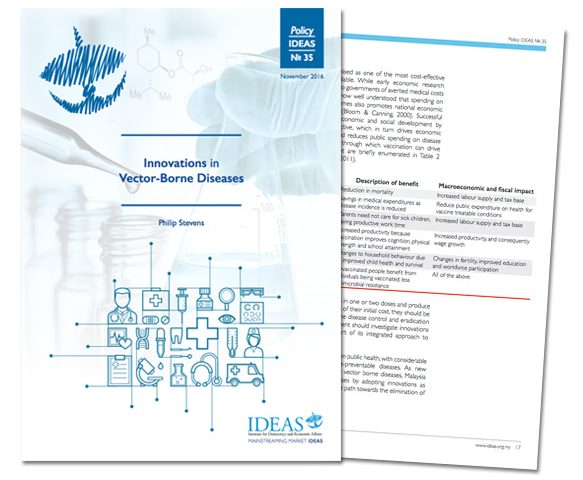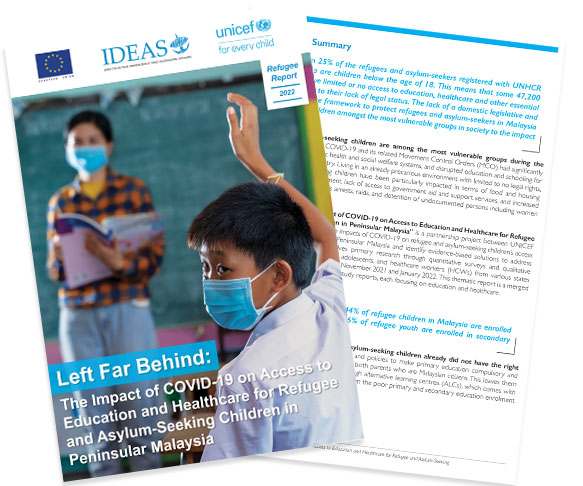
Policy Paper 35
Innovations in Vector-Borne Diseases
Author: Philip Stevens
Since the middle of the twentieth century, the world has made great progress fighting diseases transmitted by vectors such as mosquitoes, ticks and sandflies, particularly malaria. However, this progress is threatened by a surge in other vector-borne diseases such as dengue, Zika and cikungunya.
Malaysia is particularly badly hit by these three diseases, despite having nearly eliminated malaria. Given that until recently there have been no effective treatments or vaccines for these three diseases, Malaysia has focused its efforts on vector control in order to prevent disease spread and transmission. However, changes in land-use and human behaviour mean that traditional vector control methods are now unequal to the task of controlling the principle disease vector in Malaysia – the mosquito Aedes Aegyptae.
To fight back against the rise of vector-borne diseases in Malaysia, public health authorities will have to look to innovative technologies and solutions. This is likely to be a mixture of new vector control techniques and technologies and vaccines, several of which are now available for use by public health authorities.



